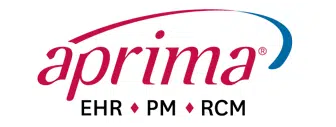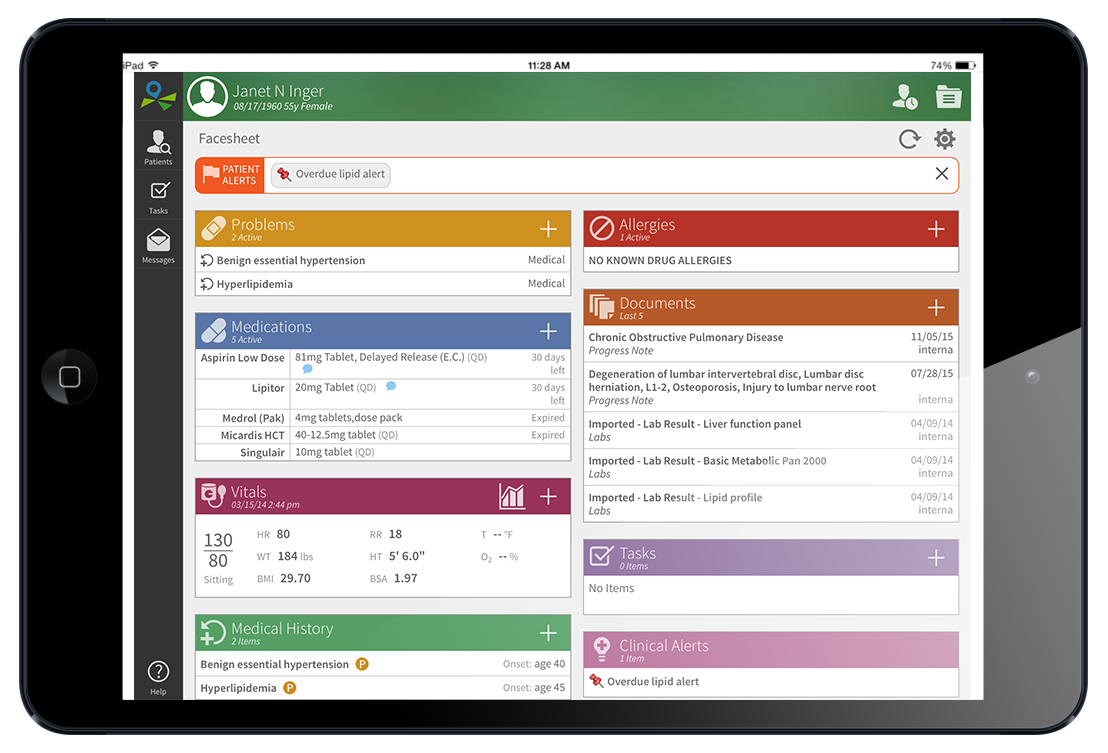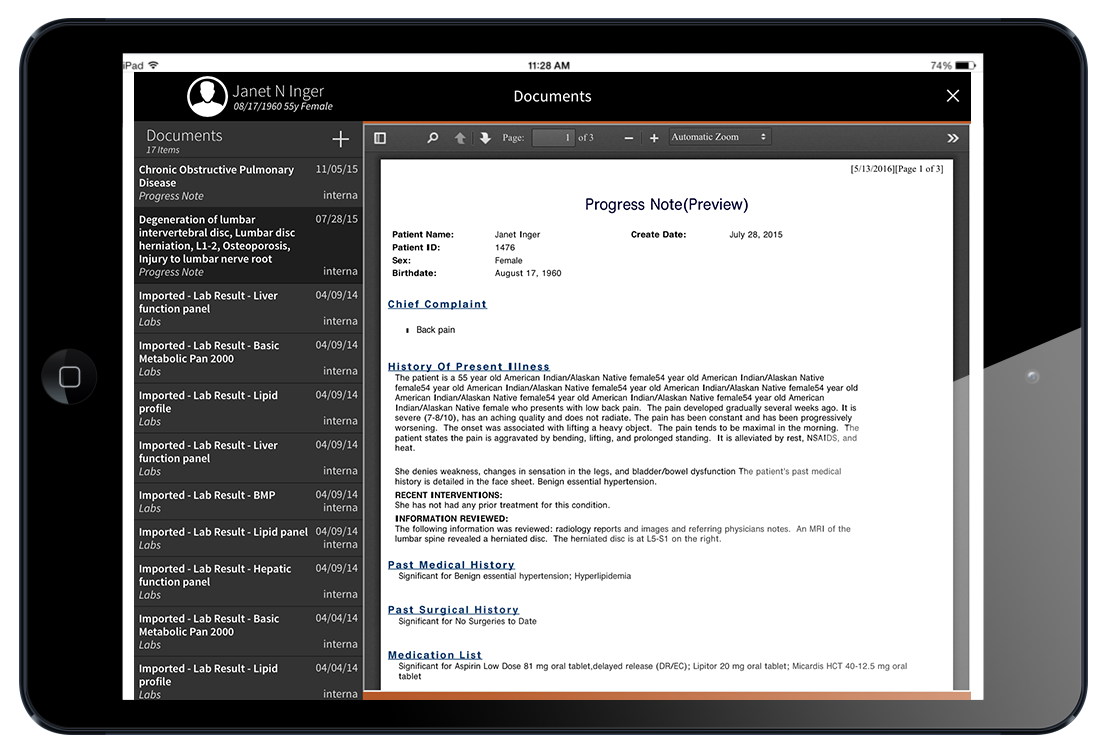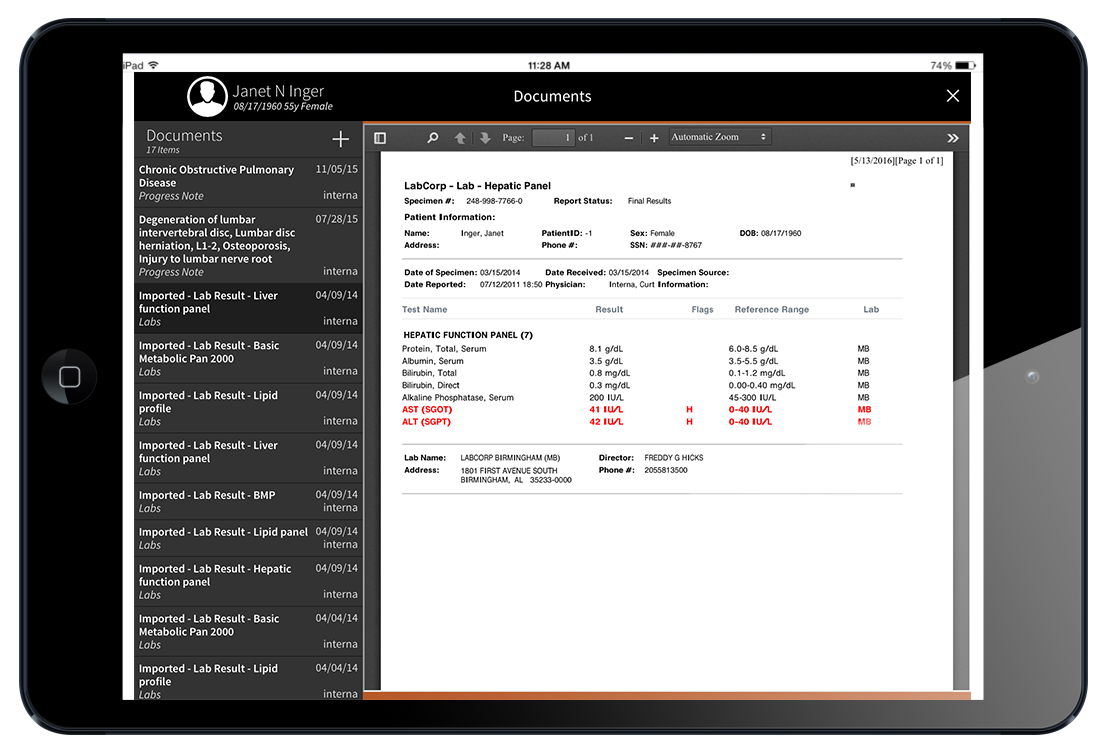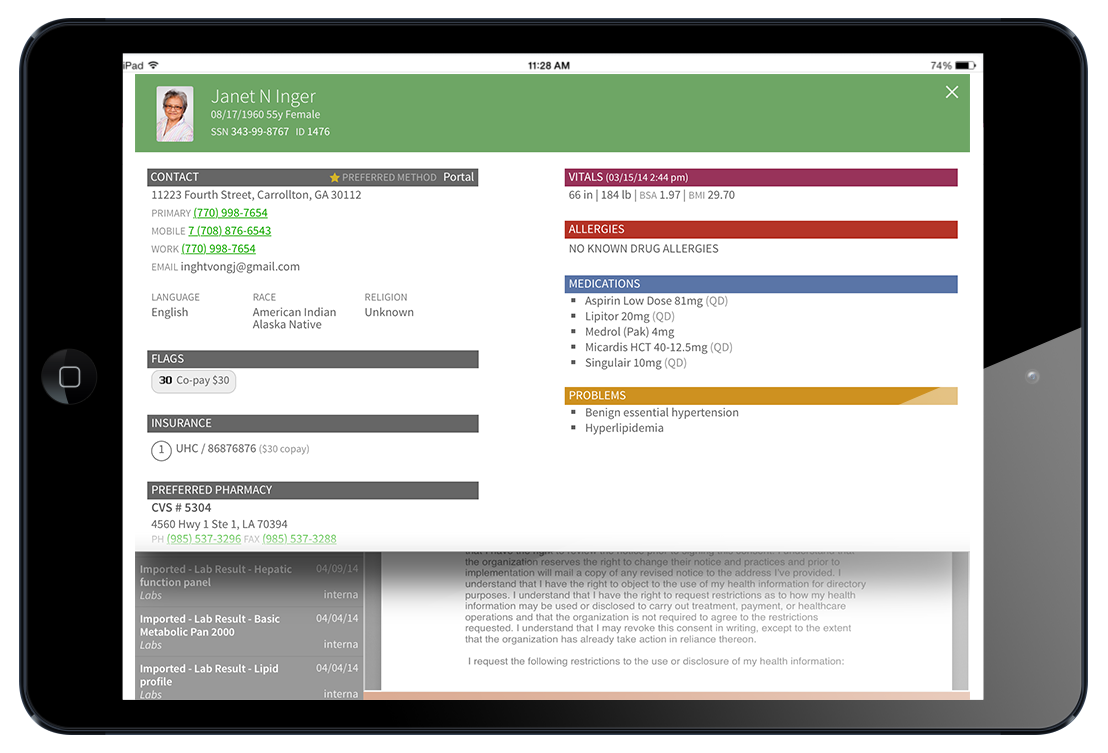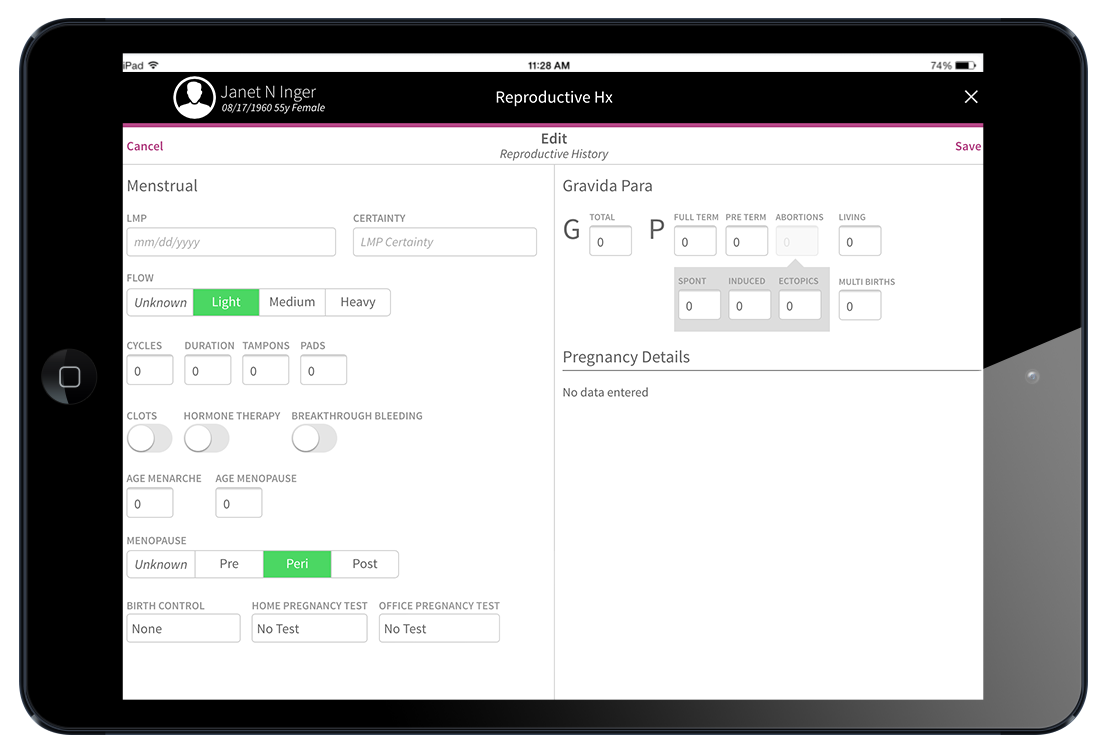Aprima EHR for Pediatrics
The biggest problem is as Pediatricians become hospital employees, their allegiance shifts from the patient to the corporate (or Government) bottom line. Pediatric providers are no longer professionals — pediatricians are employees that will do the bidding of their employer, the hospital/government. Pediatricians are losing their ability to choose the method and specific products to use in their surgeries as these decisions are now made by the hospitals and the government-run insurance policies.
Why should you pick Aprima as your Pediatric EHR? With the changes in healthcare it is becoming harder for pediatricians to stay independent. Industry challenges like ICD-10, MACRA, MIPS, PQRS, Population Health and rising costs have pushed many Pediatric providers right out of private practice. In fact, only 32% work in private practice today in 2016 versus 60% in 2007. It is sad that pediatricians help people enjoy day-to-day life, but suffer themselves with the stress of healthcare changes. Healthcare is moving away from fee for service to performance-based incentives, and that is why Pediatricians need an Electronic Health Records system like Aprima that collects data and aggregates that data to help pediatricians. Adding to the strain, administrative tasks and outdated technology, such as EHRs that require bridges to practice management or scheduling software, are consuming more and more time. Due to its complexity, Pediatric providers have some of the most demanding documentation and billing requirements, so it’s no wonder that 33% of Pediatric physicians spend over 15 hours a week on administrative tasks.
Example of some of our Pediatric-EHR Disorders (Treatment Templates)
- Conjunctivitis
- Cerumen Impaction
- Decreased Hearing
- Dizziness/Vertigo
- Ear Drainage
- Ear Foreign Body
- Ear Infection
- Ear Infection (For Merge)
- Ear Infection Follow Up
- Ear Pain
- Ear Pressure
- Eardrum Perforation
- Follow-up Ear Infection
- Otitis Media, Pediatric
- Recurrent/Persistent Ear Infections
- Impetigo Nares
- Nasal Foreign Body
- Nasal Obstruction
- Postnasal Drainage
- Acne Follow Up
- Acne Vulgaris
- Alopecia
- Atopic Dermatitis (Older Child)
- Atopic Dermatitis Follow Up (Older Child)
- Burn
- Contact Dermatitis
- Contact Dermatitis Follow Up
- Contact Dermatitis, Poison Ivy
- Head Lice
- Impetigo
- Ingrown Toenail Evaluation
- Insect Bites
- Laceration/Contusion
- Mole Removal
- Pediatric Rash
- Pruritus
- Skin Complaints (For Merge)
- Tinea Infection
- Asthma (Child)
- Asthma
- Asthma Follow Up (Doing Well)
- Asthma Follow Up
- Bronchiolitis
- Croup
- Cystic Fibrosis
- Upper Respiratory Distress
- Upper Respiratory Illness
- Ankle Sprain/Soft Tissue Injury
- Elbow Injury
- Foot Pain
- Hand/Finger Injuries
- Knee Injury
- Low Back Pain
- New Spine Patient
- Shoulder Injury
- Wrist/Forearm Injury
- ADHD/ADD
- Behavioral Assessment
- Behavioral Assessment F/U
- Food Allergy
- Food Allergy Follow Up (Doing Well)
- Food Allergy Follow Up
- Food Reaction
- Pediatric Airway
- Throat Infections
- Voice/Speech Disorder
- Allergic Rhinitis
- Allergic Rhinitis 2
- Allergic Rhinitis Follow Up (Doing Well)
- Allergic Rhinitis Follow Up
- Chronic Rhinitis Follow Up
- Combined Rhinitis
- Sinobronchitis
- Sinus Infection
- Sinusitis
- Sinusitis and Asthma
- Sinusitis and Pharyngitis
- Sinusitis, Acute
- Chicken Pox 2
- Chickenpox
- Coxsackie Virus
- Enteroviral Rash
- Fifth’s Disease
- Herpes Simplex Fever Blister
- Influenza
- Influenzal/Viral Syndrome
- Mononucleosis
- Pityriasis Rosea
- Roseola
- Viral Exanthem
- Fever
- Fever, Infant Under 3 Months
- Headaches
- Chest Pain
- Syncope In Children
- Abdominal Pain, Acute
- Appendicitis
- Constipation
- Constipation Follow Up
- Gastroenteritis Follow Up
- Gastrointestinal Complaints
- Reflux Esophagitis
- Vomiting/Diarrhea
- ADHD Dx & Mgmt, Children & Adol
- AOM, Pediatric Dx & Mgmt
- Asthma Dx & Mgmt for Children & Adults
- Autism Screening & Dx in Children
- Cerebral Palsy, Childhood
- Cystic Fibrosis
- Diabetes Insipidus Dx & Mgmt
- HTN Cardio & Risk Mgmt Pediatric
- Obesity Screening & Mgmt, Children & Adol
- Tobacco Use Cessation
- ADHD Follow Up Children & Adol
- AOM, Pediatric Follow Up
- Asthma Follow Up for Children
- Autism Follow Up Children
- Cerebral Palsy Childhood Follow Up
- Cystic Fibrosis Follow Up
- Diabetes Insipidus Follow Up
- HTN Cardio Follow Up Pediatric
- Obesity Follow Up Children & Adol
- Tobacco Cessation Follow Up
- Well Child Visit 01 (0 weeks – 1 Month)
- Well Child Visit 02 (2-3 Months)
- Well Child Visit 03 (4-5 Months)
- Well Child Visit 04 (6-8 Months)
- Well Child Visit 05 (9-11 Months)
- Well Child Visit 06 (12-14 Months)
- Well Child Visit 07 (15-17 Months)
- Well Child Visit 08 (18-23 Months)
- Well Child Visit 09 (24-35 Months)
- Well Child Visit 10 (36 Months)
- Well Child Visit 11 (4 Years)
- Well Child Visit 12 (5 Years)
- Well Child Visit 13 (6-7 Years)
- Well Child Visit 14 (8-9 Years)
- Well Child Visit 15 (10-11 Years)
- Well Child Visit 16 (12-13 Years)
- Well Child Visit 17 (Adolescent/Teen)
- Young Adult Wellness Exam
- Medication Management
- Add-On Test Orders
- Bladder Catheterization
- Blood Draw/Specimen Collection Note
- Burn Treatment Record
- Cast Placement
- Cast Removal
- Gardasil Injection
- Immunizations Only
- Incision & Drainage
- Nursemaid’s Elbow Reduction
- Peak Flow Teaching
- Pediatric Immunizations
- Phone Call
- Rocephin Administration
- Spacer/MDI Education
- Splint Placement
- Suture Note
- Tongue Clipping Note
- Umbilical Granuloma Treatment
- Wart Treatment Record
- Circumcision
- Enuresis
- Enuresis Follow Up
- Urinary Tract Infection
- Urinary Tract Symptoms
- ADHD/ADD
- Behavioral Assessment (For Merge)
- Behavioral Assessment
- Behavioral Assessment Follow Up
- Newborn Visit
- Well Child Visit 01 (0 weeks – 1 Month)
- Well Child Visit 02 (2-3 Months)
- Well Child Visit 03 (4-5 Months)
- Well Child Visit 04 (6-8 Months)
- Well Child Visit 05 (9-11 Months)
- Well Child Visit 06 (12-14 Months)
- Well Child Visit 07 (15-17 Months)
- Well Child Visit 08 (18-23 Months)
- Well Child Visit 09 (24-35 Months)
- Well Child Visit 10 (36 Months)
- Well Child Visit 11 (4 Years)
- Well Child Visit 12 (5 Years)
- Well Child Visit 13 (6-7 Years)
- Well Child Visit 14 (8-9 Years)
- Well Child Visit 15 (10-11 Years)
- Well Child Visit 16 (12-13 Years)
- Well Child Visit 17 (Adolescent/Teen)
- Adverse Drug Reaction
- Anaphylaxis
- Anaphylaxis Follow Up
- Breast Abnormality
- Camp Form
- Child Abuse
- Child Abuse Follow Up
- Juvenile Dermatomyositis
- Needle Stick Incident Report
- Paper Chart Vaccine Order Note
- Sports Physical
- STI Exposure
- Young Woman Annual
- Food Allergy Letter
- General Letter
- Metered Dose Inhaler Note
- Return to Work or School
- School Excuse
- Birth Control Med Refill
Pediatric Cardiology
- Cardiomyopathy
- Chest Pain
- Dysrhythmia
- Syncope in Children
- Follow-Up Cardiomyopathy
Pediatric Gastroenterology
- Abdominal Pain
- Appendicitis
- Constipation
- Gastrointestinal Complaints
- Hiatal Hernia
- Inguinal Hernia
- Nausea / Vomiting / Diarrhea
- Reflux Esophagitis
- Umbilical Hernia
- Follow-Up Constipation
- Follow-Up Gastroenteritis
- Food Allergy Letter
- School Excuse
Pediatric Pulmonology
- Aspirin Sensitive Asthma
- Asthma
- Asthma Decompensation
- Bronchiolitis
- Bronchitis
- Chronic Cough
- COPD Evaluation
- COPD – Full Visit
- Cough
- Croup
- Cystic Fibrosis
- Empyema
- Hemoptysis
- Hypersensitivity Pneumonitis
- Lung Mass
- Pleural Effusion
- Pneumonia
- Pulmonary Nodule
- Sarcoidosis
- Sigh-Dyspnea
- Tietze’s Syndrome
- Abnormal CXR
- New Patient Visit
- Preoperative Evaluation
- Recent Respiratory Infection
- Upper Respiratory Distress
- Upper Respiratory Illness
- Follow-Up Sleep Study
- Sleep Apnea
- Sleep Services Order
- Follow-Up Aspirin-Sensitive Asthma
- Follow-Up Asthma
- Asthma Status
- Follow-Up Bronchiolitis
- Follow-Up Bronchitis
- Follow-Up Chronic Cough
- Follow-Up COPD Decompensation
- COPD Status Visit
- Follow-Up Croup
- Follow-Up Cystic Fibrosis
- Follow-Up General
- Follow-Up Hypersensitivity Pneumonitis
- Follow-Up Pleurisy
- Follow-Up Pneumonia
- Follow-Up Stable Asthma
- Follow-Up Xolair Injection
- 6 Minute Oximetry
- Inhaler Use Teaching
- Patient Instructions
- Patient Phone Call
- Pulmonary Letter
- Return Call by Physician
Physical Exam: Aprima EHR for Pediatrics provides natural language diagnoses and reruns them to scientific terms (with built-in medical drawings): Predefined templates and panels are available for conducting physical exams on any part of the body. These templates also include medical drawings that enable Pediatricians to comment, import images, and review clinical information instantly.
Cardio Image Management: The integrated module of document & image management enables Pediatricians to upload images demonstrating Pediatric diagnoses.
Device Compatibility: Aprima EHR for Pediatrics has the ability to interface with clinical devices to automate the exchange of clinical data into the EMR/EHR.
Recalls, Reminders, and Letters: Aprima EHR for Pediatrics has two-way communications with patients, and enables you to automatically generate reminders, confirmations, recall, follow-up, and progress update letters.
Risk Management: The built-in feature of adverse drug event reporting/alerts enables you to manage risks associated with allergies, food, and patient medication.
Electronic Prescription: Send electronic prescriptions and refill requests online, including Controlled Substances.
Patient Education: Utilize industry-standard clinical decision support and the integrated knowledge base to deliver preventive care, disease management, drug information, and patient education services.
E&M Coding Assistance: Maximize payments and eliminate missed charges. Avoid under-coding or over-coding.
Electronic Superbills: Aprima is an all-in-one database; the electronic superbill is just a click away, regardless of whether the physician signed off on the notes or not.
Lab Orders & Results: Pediatric-EHR Prime Suite is compatible with HL7 interfaces to directly connect with labs to electronically send and receive orders or results.
Decision Support: Confirm your decision with Aprima’s help on how other Pediatricians treat such a condition.
Life is complicated enough, lets make it simpler.
Pediatric EHR Designed by Pediatricians for Pediatricians
Need more info?
Call us at 800-955-0321
Call 800-955-0321 or Click below
Download a Demo
Free trial software and online demos
Try a Free Demo
Schedule Live Demo
Let our experts show you our solutions

